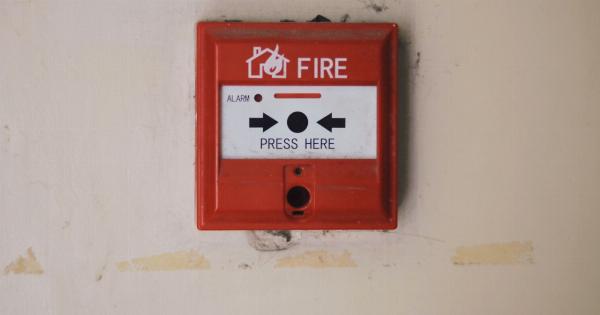Schizophrenia is a chronic and severe mental disorder that affects a person’s perception of reality, thoughts, emotions, and behavior. It is important to recognize the symptoms of schizophrenia early on to ensure timely intervention and treatment.
In this article, we will discuss the most common symptoms associated with schizophrenia.
1. Delusions
Delusions are false beliefs that are held despite evidence to the contrary. People with schizophrenia often experience delusions that can be paranoid or grandiose in nature.
Paranoid delusions involve believing that others are conspiring against them, while grandiose delusions involve having an exaggerated sense of self-importance.
2. Hallucinations
Hallucinations are sensory experiences that are not based on reality. Auditory hallucinations, such as hearing voices that are not there, are one of the most common symptoms of schizophrenia. Visual hallucinations, although less common, can also occur.
3. Disorganized Thinking
People with schizophrenia may exhibit disorganized thinking, which is evident in their speech and behavior. They may have difficulty organizing their thoughts or following a logical sequence of ideas.
Their speech may become fragmented and incoherent, making it challenging to hold a meaningful conversation with them.
4. Abnormal Motor Behavior
Individuals with schizophrenia may display various abnormal motor behaviors.
These can include repetitive movements, purposeless agitation, unusual postures, or catatonic behavior, where they exhibit a lack of response to stimuli or maintain unusual body positions for extended periods.
5. Negative Symptoms
Negative symptoms refer to a reduction or absence of normal functions or behaviors. These symptoms can include a lack of motivation or interest, social withdrawal, reduced emotional expressiveness, and an overall decline in daily functioning.
Unlike positive symptoms (e.g., hallucinations, delusions), negative symptoms can sometimes be harder to recognize.
6. Impaired Social and Occupational Functioning
Schizophrenia can significantly impact an individual’s ability to function in social and occupational settings.
They may have difficulty maintaining relationships, experiencing difficulties at work or school, or withdrawing from previously enjoyed activities. These impairments may result from the symptoms of schizophrenia or the side effects of medications.
7. Cognitive Deficits
Cognitive deficits are frequently observed in individuals with schizophrenia. They may have difficulties with attention, memory, problem-solving, and executive functions.
These cognitive impairments can interfere with daily life activities and contribute to a reduced quality of life.
8. Emotional Disturbances
Schizophrenia can lead to disturbances in emotional experiences and expressions. Patients may experience an inappropriate range or intensity of emotions.
They may also struggle to express emotions appropriately through facial expressions, tone of voice, or body language.
9. Problems with Insight and Awareness
People with schizophrenia often struggle with insight and awareness of their own condition. They may lack awareness that their symptoms are not based on reality or fail to recognize the need for treatment.
This lack of insight can make it challenging for individuals to engage in treatment and adhere to medication regimens.
10. Early Warning Signs
Recognizing early warning signs can be crucial in identifying schizophrenia symptoms and seeking early intervention.
Some common early warning signs include social withdrawal, a decline in academic or occupational performance, increased irritability or suspiciousness, difficulty concentrating, changes in sleep patterns, and a deterioration in self-care.
Conclusion
Understanding the symptoms of schizophrenia is vital for early identification and intervention. If you or someone you know is experiencing any of the symptoms mentioned, it is crucial to seek professional help.
Early treatment can improve outcomes and help individuals with schizophrenia lead fulfilling and productive lives.




















